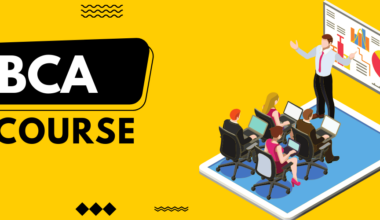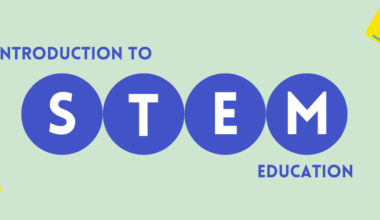Are you fascinated by the dynamic world of commerce and finance? Do numbers speak to you, and do you dream of a career where strategic thinking meets real-world applications? If so, then a Bachelor of Commerce (B.Com) degree could be your perfect launchpad to success!
The Bachelor of Commerce (B.Com) is a widely pursued undergraduate degree focusing on commerce, accounting, economics, and business administration. This course aims to provide students with a robust foundation in these fields, preparing them for various roles in the business and finance sectors.
This comprehensive blog dives deep into everything B.Com. We’ll unveil the course structure, introducing you to the fascinating subjects you’ll encounter. We’ll also explore the diverse career paths a B.Com degree unlocks, giving you a glimpse of the exciting possibilities that await you.
Full Form of B.Com
The full form of B.Com is Bachelor of Commerce. This undergraduate degree typically spans three years and is designed to impart essential knowledge and skills in various aspects of commerce and business.
Course Duration
The B.Com program typically lasts three years, divided into six semesters.
Admission Process
Admission to the B.Com course varies across institutions but generally follows a similar pattern:
- Eligibility Criteria: Candidates must have completed their higher secondary education (10+2) from a recognized board. The minimum percentage required can vary but generally ranges between 45% to 55%.
- Entrance Exams: Some universities and colleges conduct entrance exams for admission into the B.Com program. These exams assess the candidate’s knowledge in subjects like mathematics, economics, and general aptitude.
- Merit-Based Admission: Many institutions also offer admission based on the merit list, which is prepared considering the marks obtained in the 10+2 examination.
- Application Process: The application process typically involves filling out an online or offline form, submitting necessary documents, and paying the application fee.
- Counseling and Interview: In some cases, shortlisted candidates may be called for a counseling session or interview before final admission.
Syllabus for B.Com
Financial Accounting
- Introduction to accounting principles, journal entries, ledger, trial balance, and financial statements.
- Bank reconciliation, depreciation, and accounting for partnerships.
Business Law
- Basics of contract law, the sale of goods act, and company law.
- Consumer protection laws and intellectual property rights.
Economics
- Microeconomics: Demand and supply, consumer behavior, and market structures.
- Macroeconomics: National income, inflation, and monetary and fiscal policies.
Business Mathematics and Statistics
- Mathematical concepts: Matrices, calculus, and linear programming.
- Statistical techniques: Measures of central tendency, dispersion, correlation, regression, and hypothesis testing.
Corporate Accounting
- Company accounts, issue of shares, debentures, and final accounts of companies.
- Amalgamation, absorption, and reconstruction of companies.
Cost Accounting
- Elements of cost, cost sheet, and cost classification.
- Methods of costing: Job costing, process costing, and marginal costing.
Management Accounting
- Budgeting, variance analysis, and financial statement analysis.
- Ratio analysis, cash flow, and fund flow statements.
Taxation
- Income tax: Basic concepts, residential status, and computation of total income.
- Goods and Services Tax (GST): Overview, registration, and filing of returns.
Auditing
- Principles of auditing, types of audit, and audit process.
- Internal control, vouching, and verification of assets and liabilities.
Business Organization and Management
- Principles of management, planning, organizing, and staffing.
- Leadership, motivation, and communication in organizations.
These subjects provide a comprehensive understanding of both theoretical and practical aspects of commerce, preparing students for various roles in the business and finance industry.
Career Opportunities for B.Com Graduates
Chartered Accountant (CA)
- Role: Chartered accountants manage financial accounts, auditing, taxation, and financial planning for individuals and businesses.
- Skills Required: Proficiency in accounting, taxation laws, auditing techniques, and financial management.
Financial Analyst
- Role: Financial analysts analyze financial data, forecast trends, and provide investment recommendations.
- Skills Required: Strong analytical skills, proficiency in financial modeling, and understanding of financial markets.
Banking Professional
- Role: Banking professionals handle customer services, loans, investments, and other banking operations.
- Skills Required: Good communication skills, understanding of banking products, and financial services.
Accountant
- Role: Accountants prepare and maintain financial records, manage budgets, and ensure compliance with financial regulations.
- Skills Required: Proficiency in accounting software, attention to detail, and knowledge of accounting principles.
Tax Consultant
- Role: Tax consultants assist individuals and businesses in tax planning, compliance, and filing of tax returns.
- Skills Required: Knowledge of tax laws, strong analytical skills, and proficiency in tax software.
Human Resource Manager
- Role: Human resource managers oversee recruitment, training, employee relations, and compensation.
- Skills Required: Strong interpersonal skills, understanding of labor laws, and proficiency in HR software.
These roles offer diverse opportunities for B.Com graduates to grow and excel in the business and finance industry.
Top Recruiting Companies for B.Com Graduates
- Deloitte
- KPMG
- Ernst & Young (EY)
- PricewaterhouseCoopers (PwC)
- ICICI Bank
- HDFC Bank
- Tata Consultancy Services (TCS)
- Accenture
- Reliance Industries
- Larsen & Toubro
Conclusion
Bachelor of Commerce (BCom) course provides a solid foundation in commerce, finance, and business management. Its comprehensive syllabus covers key areas such as accounting, economics, and marketing, preparing students for various roles in the business world.
The admission process is typically based on academic performance, with some institutions requiring entrance exams. BCom graduates have diverse career opportunities, including positions as accountants, financial analysts, and marketing managers. The degree also opens doors for further studies and professional certifications like CA, CFA, and MBA.
Choosing a BCom course is a strategic step towards a successful career in the business and finance sectors, equipping students with the essential skills and knowledge for a rewarding professional journey. So, choose the best B.Com college in Ghaziabad, their program offers the perfect start for a career in business.






